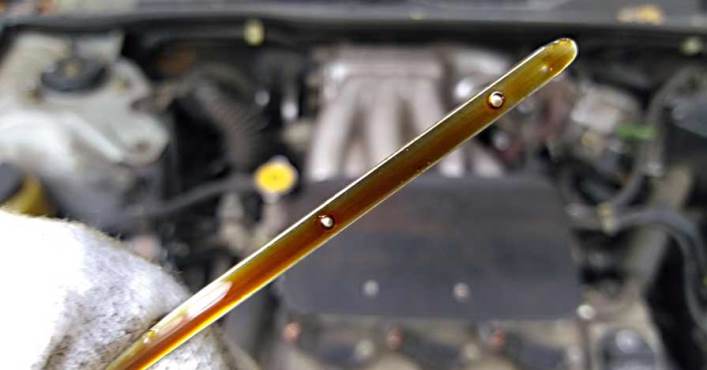When an engine oil gets bad there are signs it gives. These signs may come up when your engine is due for oil replacement or when a bad oil is poured into the engine. If you don’t have a reminder sticker indicating your next oil change or how to know good engine oil, you may need to look out for the following indications showing you have a bad oil.
Check Engine or Oil Change Light
The most obvious alert that there’s an issue with your oil will come from the car itself. The oil change light in your vehicle will illuminate when there’s not enough oil in the system, so check the dipstick to see what’s happening. In other cases, the check engine light will illuminate. This is your car warning you that things are not running fine within the engine.
Engine Noise and Knocking
Oil provides a protective layer between engine parts, avoiding metal-to-metal brushing and keeping the engine quiet. If your oil isn’t doing its job properly, the engine noise will increase. In severe cases, you may even hear knocking or rumbling sounds that signify your engine is tearing itself apart bit by bit through lack of lubrication.
Dark, Dirty Oil
Clean oil is amber in color and slightly translucent. As it is used, it becomes filled with particles collected from the engine and turns darker. It will not be obvious when this begins to happen, so you must be vigilant and check your engine oil at least once a month. To do this, remove the dipstick and wipe it off before returning it to the oil tank. Now take it out a second time. If you cannot see the dipstick through the oil, it is time for an oil change.
Oil Smell Inside the Car
If you smell oil inside the car, it can often signify an oil leak. If you also smell fuel or exhaust fumes, the vehicle may be overheating. Either way, you will want to schedule maintenance immediately.
Exhaust Smoke
Some translucent vapor will always come out of your car’s tailpipe, but if this changes to smoke, it’s time for an engine check-up. You may have faulty engine parts or an oil leak.
Excessive Mileage
If you’ve traveled a lot with your car, consider whether you need an oil change sooner than your normal schedule. Every car is different, but most should have their oil changed every 3,000 miles or three months. New vehicles usually require a change of oil every 6,000 miles or six months. Check your owner’s handbook for specific guidelines. Consider a high-mileage oil for older vehicles.
Oil changes are simple and inexpensive, and one of the most important things you can do to keep your car from aging prematurely. Having the right level and quality of oil will prevent excessive wear and tear on your engine, ultimately resulting in fewer repairs down the road. You can contact us for your oil change by following this link Please I need an oil change and a technician will contact you within 24 hours.
 Spot Dem Everything About Cars
Spot Dem Everything About Cars






